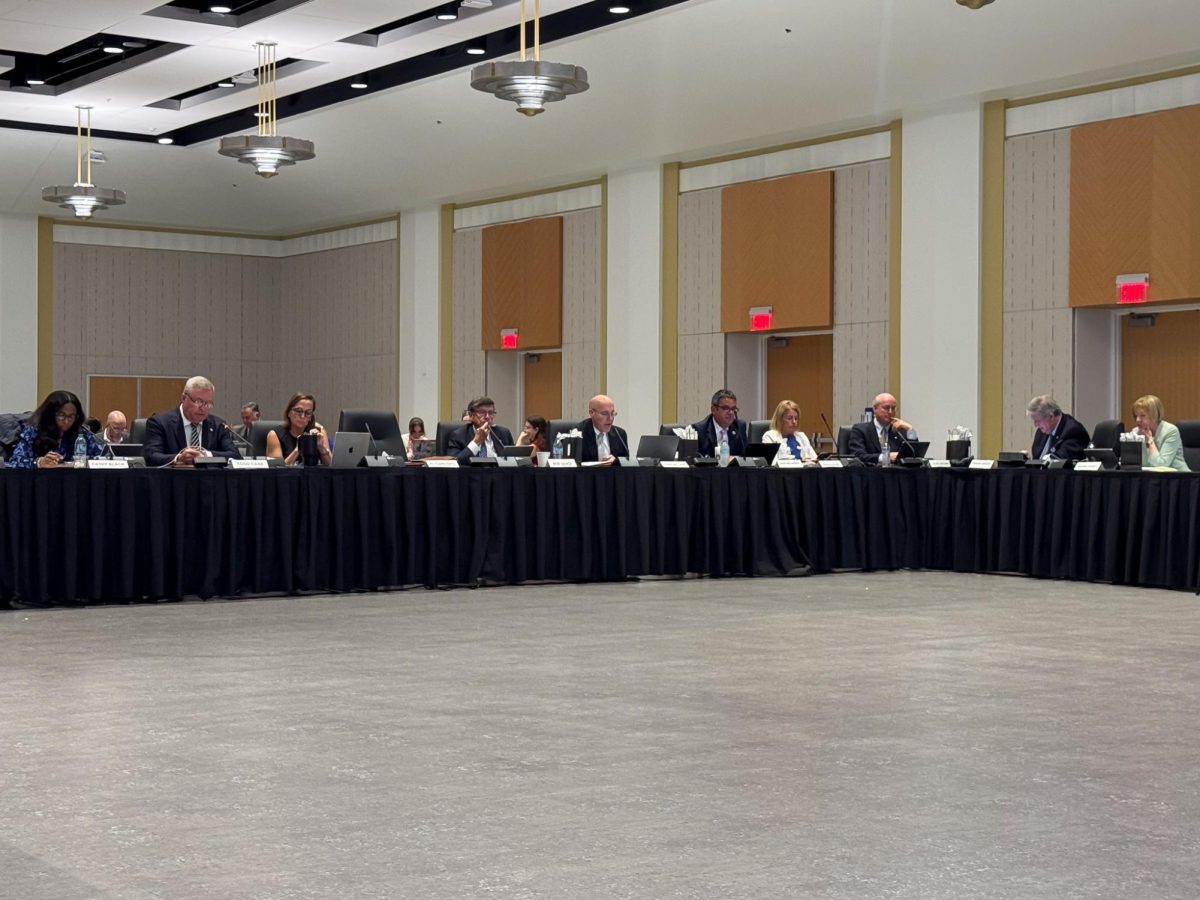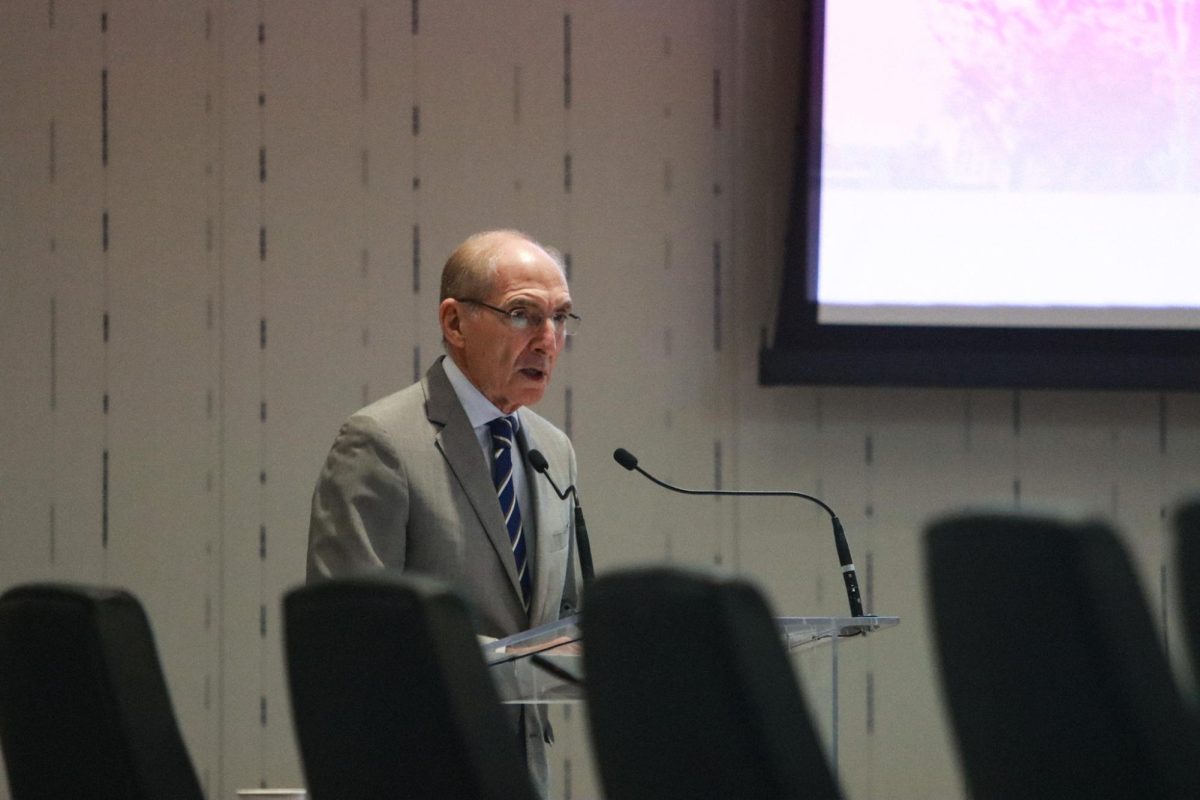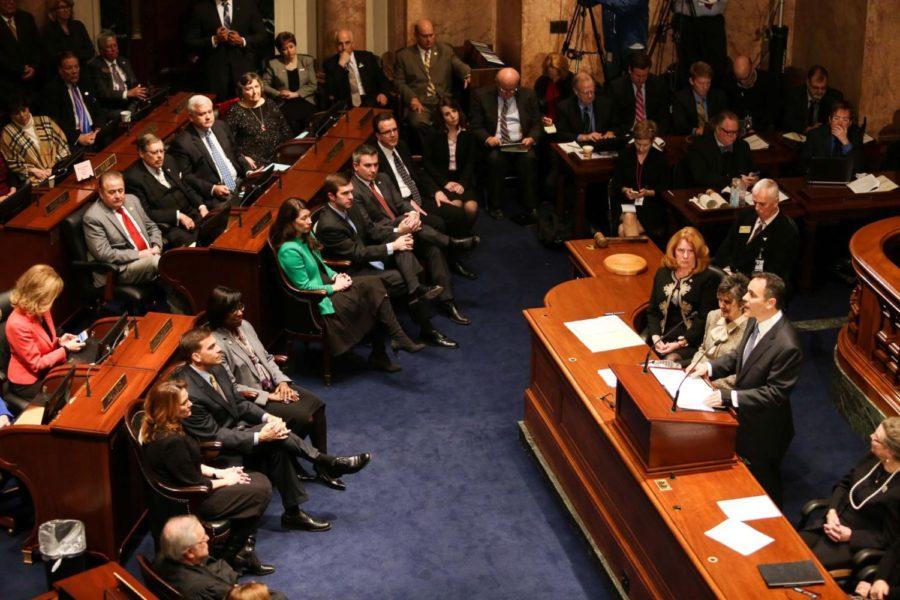Kentucky House passes divisive ‘Blue Lives Matter’ bill
Kentucky governor Matt Bevin addresses the Commonwealth with his budget for the next two years on Tuesday, January 26, 2016 at the Capitol building in Frankfort, Ky. The budget included a $110 million cut from UK’s state general funding, the elimination of Kynect, and a re-evaluation of status for those receiving Medicaid.
February 15, 2017
FRANKFORT, Ky. — Kentucky House of Representatives passed House Bill 14 earlier this week, unofficially referred to as the “Blue Lives Matter” bill. The bill qualifies offenses committed against an individual because of actual or perceived employment as a peace officer, member of a fire department and emergency medical services personnel as a hate crime. It also includes volunteers that are violated while performing duties with an organized fire department or emergency medical services personnel. The current Kentucky statute only applies to hate crime cases involving: race, color, religion, sexual orientation or national origin.
Kentucky representative Kevin D. Bratcher proposed HB 14 in response to the killings of five police officers in June 2016.
Although the bill passed 77 to 13, there was vigorous debate on the matter. Some protesters were even escorted out for shouting during session. Kentucky representatives, such as Attica Scott and Jim Wayne, raised concerns that the bill will target minorities and protesters.
Scott suggested sensitivity training of police officers and increasing pay to create a better relationship and overall social climate between officers and people of color.
“We have to look at the ugly history of white males not getting along with people,” Wayne said. He suggested that his colleagues reflect on white privilege and white male dominance.
In response to the negative feedback, Bratcher protested that this bill isn’t about race. He is quoted saying “You guys don’t know what’s in my heart and I don’t know what’s in your heart, but I don’t know how anybody could vote against this bill.”
Rep. George Brown urged students to pay attention and keep score of bills passed. He said he believes HB 14 can charge a person for resisting arrest.
“Initially the bill was to relate to hate crimes dealing with police officers and first responders; ultimately the bill is an attack on first amendment rights,” he said. “It’s arguing against the right to protest.”
HB 14 now goes to the state senate. If passed the bill could become law as early as July 2017.






























































































































































